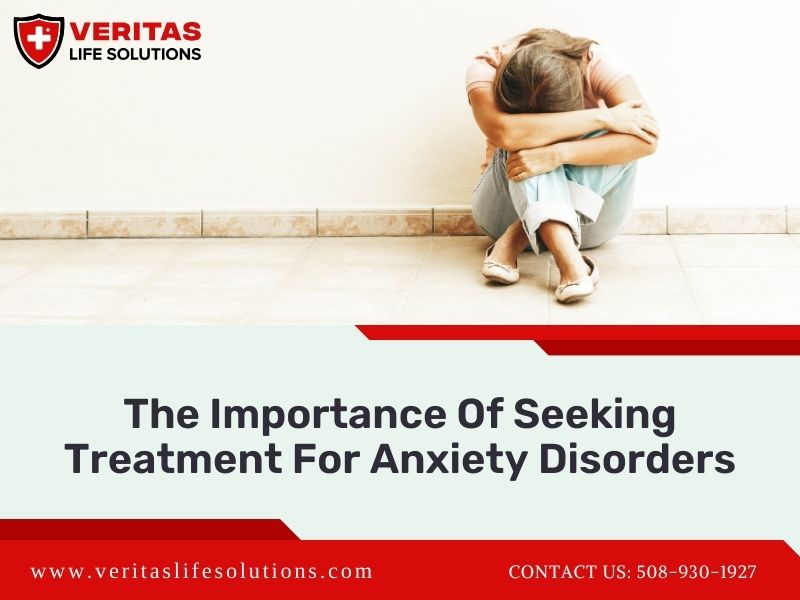
Anxiety disorders are prevalent mental health issues that impact millions of people globally. Anxiety disorders are characterized by excessive and persistent concern or fear that severely reduces everyday functioning and quality of life, but periodic emotions of anxiety are a natural part of life. Even though anxiety problems are common, many people suffer in silence because they don’t know how important it is to get help. If you opt for Best Anxiety Treatment Center CT, contact Dr Aafaque Akhter from Veritas Life Solution. He is well-skilled and can offer you the best Anxiety Treatment Services Connecticut.
Let’s delve into the points:–
Untreated anxiety can make a person feel as though they are caught in a never-ending loop of worry, fear, and discomfort. Over time, untreated anxiety can worsen symptoms and cause more psychological and physical discomfort. By giving people the skills, resources, and support they need to successfully manage their symptoms and reclaim control over their lives, seeking therapy ends this cycle of pain.
Work, relationships, and general well-being are just a few of the areas of life where anxiety disorders can have a significant negative influence. Untreated anxiety can make it difficult for a person to focus, go about their everyday business, or interact with others because of intense sensations of fear and anxiety. By lowering symptoms, strengthening coping mechanisms, and encouraging increased emotional stability and resilience, receiving therapy for anxiety disorders can greatly enhance quality of life.
Untreated anxiety disorders can result in a number of problems, such as substance misuse, depression, long-term medical issues, and a decline in social functioning. Prolonged stress and anxiety can have detrimental effects on the body and mind, raising the possibility of digestive disorders, heart problems, and other health concerns. Early intervention can help avoid these issues and reduce the long-term effects of anxiety on general health and wellbeing.
Anxiety problems can cause tension in friendships, family, and romantic partnerships. Untreated anxiety can cause a person to become withdrawn from social situations, have trouble communicating, or have mood swings and irritability. Getting therapy for anxiety disorders can help with interpersonal relationships by lowering symptoms, improving communication, and encouraging more understanding and empathy among family members.
Learning useful coping mechanisms to control symptoms and lessen discomfort is a key component of treatment for anxiety disorders. Therapists assist clients in learning more effective coping mechanisms for stresses and anxiety triggers by employing a variety of evidence-based treatments, including mindfulness-based therapy, cognitive-behavioral therapy (CBT), and relaxation techniques. By developing these coping mechanisms, people can deal with difficult circumstances more skillfully and become more resilient to stress in the future.
Therapy for anxiety gives patients a chance to reflect on their lives, examine themselves, and grow as people. Therapy sessions provide a secure and encouraging setting for examining underlying feelings, ideas, and thoughts that fuel anxiety symptoms. People can better understand their triggers, patterns, and coping mechanisms by developing self-awareness and insight. This allows them to make good adjustments and develop a stronger sense of self.
Learning useful coping mechanisms to control symptoms and lessen discomfort is a key component of treatment for anxiety disorders. Therapists assist clients in learning more effective coping mechanisms for stress and anxiety triggers by employing a variety of evidence-based treatments, including mindfulness-based therapy, cognitive-behavioral therapy (CBT), and relaxation techniques. By developing these coping mechanisms, people can deal with difficult circumstances more skillfully and become more resilient to stress in the future. If you opt for Best Anxiety Treatment Center CT, contact Dr Aafaque Akhter from Veritas Life Solution. He is well-skilled and can offer you the best Anxiety Treatment Services Connecticut.
Please contact us for an appointment or to discuss your requirements.
Pingback: Top 5 Symptoms and Signs To Recognize Anxiety- Veritas Life Solutions